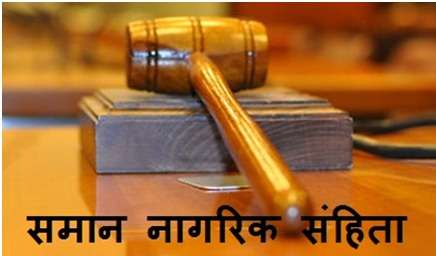Dehradun. The state government has taken an important initiative towards implementing Uniform Civil Code in Uttarakhand. After the presentation of the bill related to this in the extended session of the Assembly on Tuesday, many curiosities regarding this are also in the minds of the common people. An attempt was made to find answers to some burning questions regarding the Uniform Civil Code.
- Why is there a need for a Uniform Civil Code?
While framing the Constitution of India, after extensive debate in the Constituent Assembly, it was emphasized that in the national interest, a Uniform Civil Code should be made in the country at an appropriate time. Baba Saheb Dr. Bhimrao Ambedkar was also a strong supporter of Uniform Civil Code.
The Supreme Court has also made appropriate comments in favor of this Code in its decisions given in various cases. Anyway, uniform laws are applicable for criminal and civil cases in the country. In such a situation, if civil law also applies equally to everyone, it will be an important step for the country’s basic spirit of unity in diversity. - Why were the tribes kept out of the scope of the Code?
Special protection has been provided to Scheduled Tribes in Articles 366 and 342 of the Constitution. When the expert committee preparing the draft of the Uniform Civil Code interacted with the tribal groups of the state, the tribal society was requested to give some time for mutual discussion and consensus among different sections. Anyway, the condition of women in the tribal community is better as compared to other sections. - What is the provision for Anand Marriage Act in the Code?
There is no restriction of any kind on marriage rituals in all religions and classes in the bill. Rituals like Saptapadi, Ashirwad, Nikah, Pavitra Bandhan, Anand Karaj, Arya Samaji marriage, marriages registered under Special Marriage Act etc. have been preserved. - What will happen to the Marriage Registration Act?
After the implementation of the Uniform Civil Code, the Compulsory Marriage Registration Act applicable in the state since 2010 will be abolished. - How will the property of the deceased be divided?
L
In the Code, the word property has been removed and the word ‘property’ has been used. Share, interest or rights in all types of movable or immovable, ancestral, joint, tangible or intangible property of the deceased are included. After the implementation of the Code, ancestral property will be considered self-acquired property of the person. It will be divided among his heirs as per the rules decided. - How much of his property can one bequeath?
Any person can bequeath his entire property. Till now there were different rules of will for Muslim, Christian and Parsi communities. After the implementation of the Code, the right to inherit will be equal for all religions and classes. - Why is there no provision for adoption?
There is already a provision in the Justice Juvenile Act for all sections of the society to adopt from their relatives apart from orphanages and children’s homes. The institutions and procedures related to this are already determined. Probably, that is why this subject was not included within the scope of the Code. - Why are there no provisions related to guardianship in the code?
The Guardians and Wards Act is a central law, which applies equally to everyone. - On whom will the Uniform Civil Code be applicable?
This will be applicable to all the residents of the state as well as all the employees of the state government, employees of the central government or its undertakings working in the state, persons residing in the state for one year, beneficiaries of central and state schemes. This means that civil laws will apply equally to all persons living in the state.











